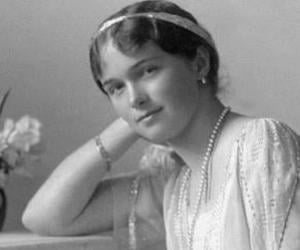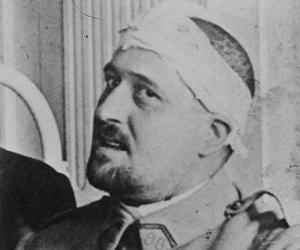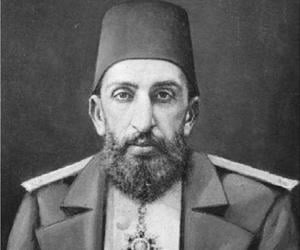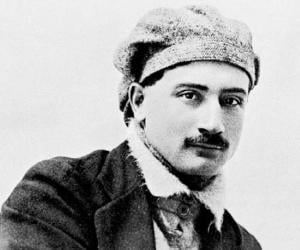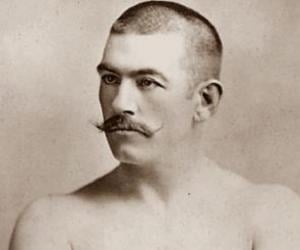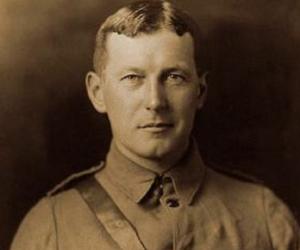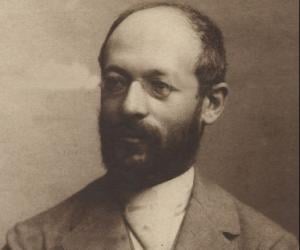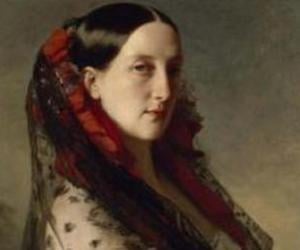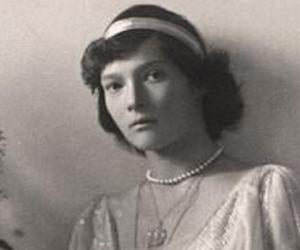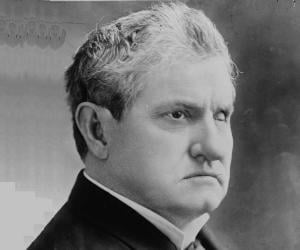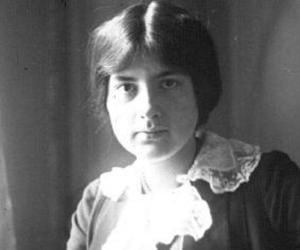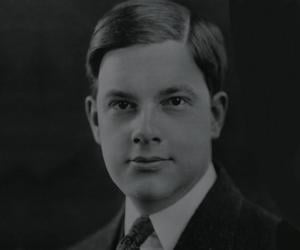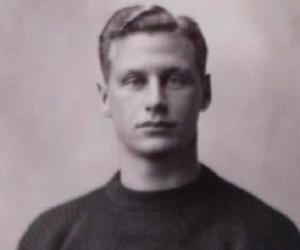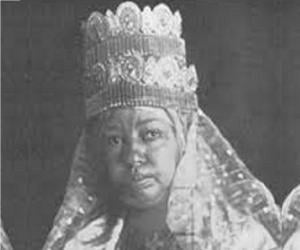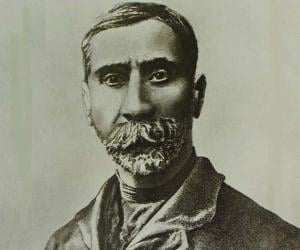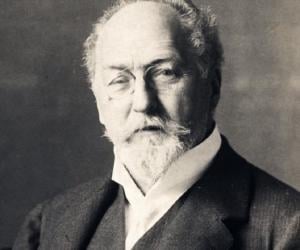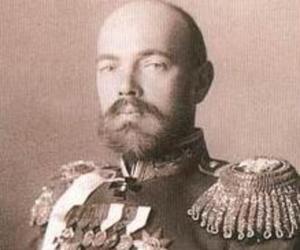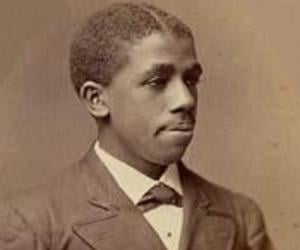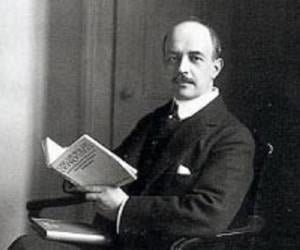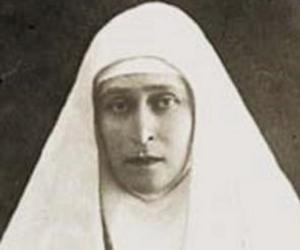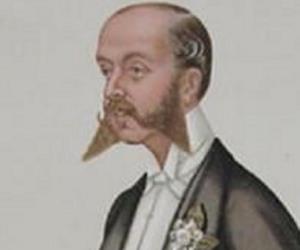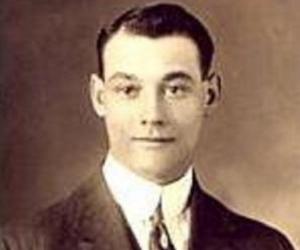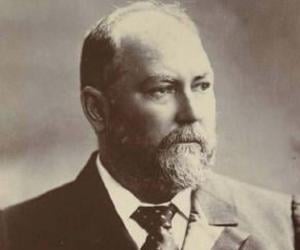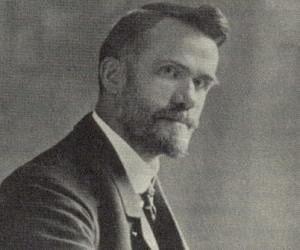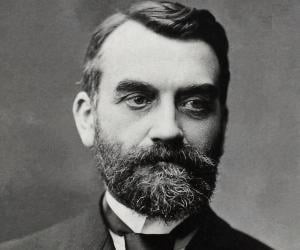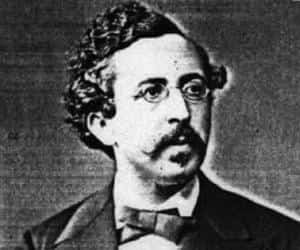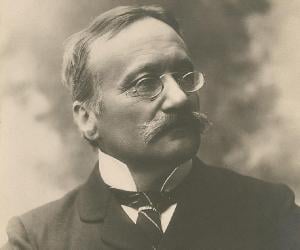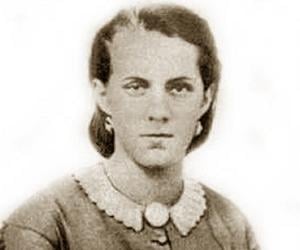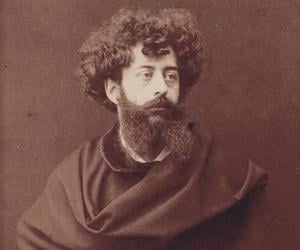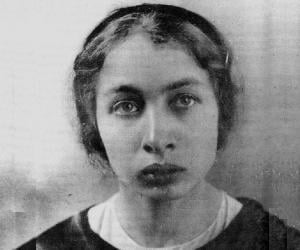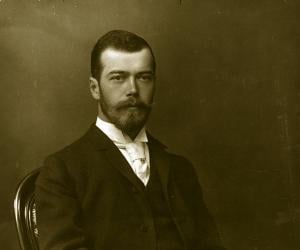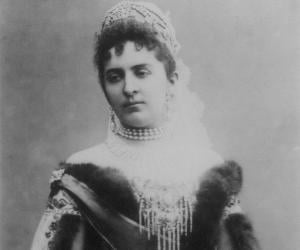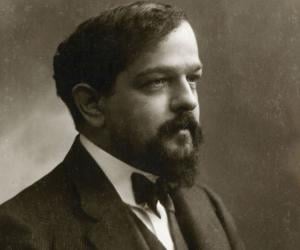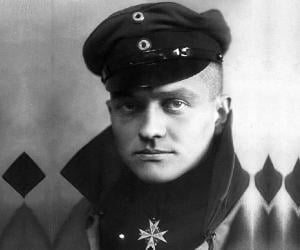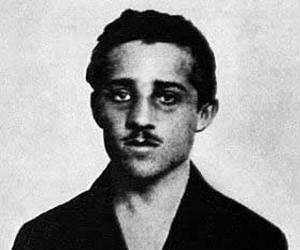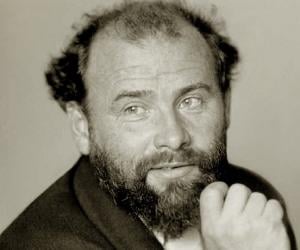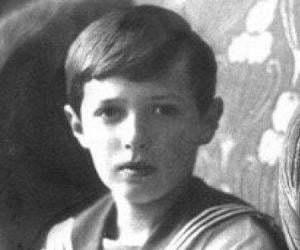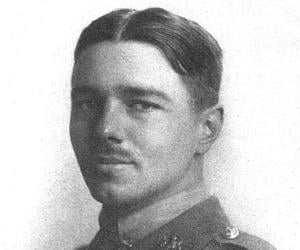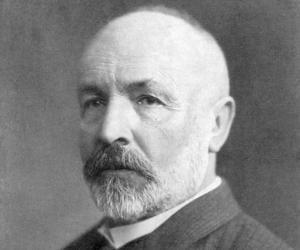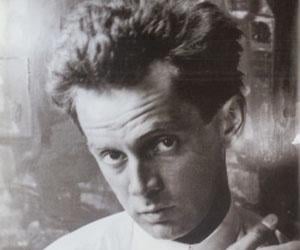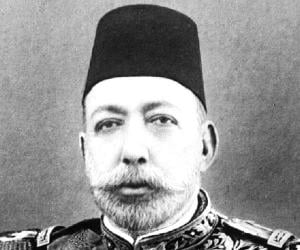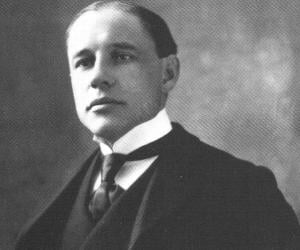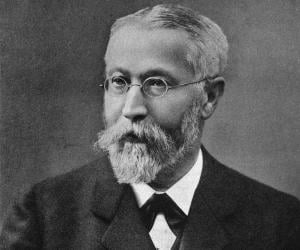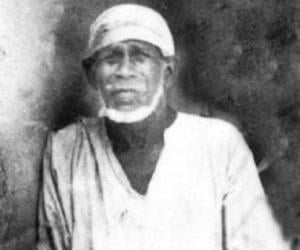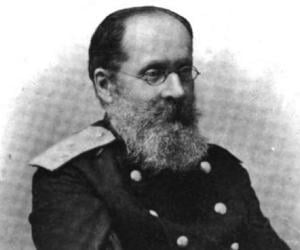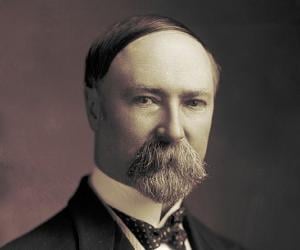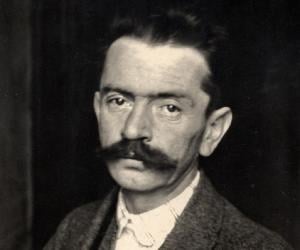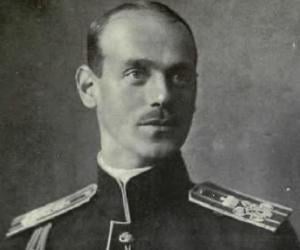Famous People Who Died In 1918
Discover the most famous people died who died in the year 1918. This list includes people like Grand Duchess Anastasia Nikolaevna of Russia, Sai Baba of Shirdi, Claude Debussy, Gustav Klimt, Gavrilo Princip and many more. This list of celebrities is loosely sorted by popularity. People featured on this list, include political leaders, artists, emperors & kings and soldiers who died in 1918. This list includes people from Russia, United States, France & Germany and many more countries.
Vote for Your Favourite People Who Died In 1918
Right IconThis ranking is based on an algorithm that combines various factors, including the votes of our users and search trends on the internet.
Birthdate: May 18, 1868
Sun Sign: Taurus
Birthplace: Saint Petersburg, Russia
Died: July 17
Nicholas II reigned as the last Emperor of All Russia from 1894 until his abdication in 1917. His reign oversaw a series of reforms in Russia. These reforms included the introduction of literacy programs, civil liberties, and methods to modernize the empire's infrastructure. However, these reforms were eventually undermined by Nicholas' love for autocratic rule.
Birthdate: June 18, 1901
Sun Sign: Gemini
Birthplace: Peterhof, Saint Petersburg, Russia
Died: July 17
Grand Duchess Anastasia Nikolaevna of Russia was the youngest daughter of Tsar Nicholas II. She was assassinated by the Bolsheviks in July 1918. However, rumors of her escape sprung up later, with many imposters claiming to be Anastasia. Nevertheless, DNA tests have dismissed any chances of Anastasia’s survival.
3
Claude Debussy(French Impressionist Composer Best Known for His Opera 'Pelléas et Mélisande')
Birthdate: August 22, 1862
Sun Sign: Leo
Birthplace: Saint-Germain-en-Laye, France
Died: March 25
Claude Debussy was a French composer whose career spanned over 30 years. Regarded as one of the most influential composers of his generation, Claude Debussy's works have influenced several other composers, such as Bill Evans, George Benjamin, Olivier Messiaen, and Béla Bartók. Claude Debussy is also regarded as the first Impressionist composer, though he rejected the term.
Birthdate: May 2, 1892
Sun Sign: Taurus
Birthplace: Wrocław, Poland
Died: April 21
Manfred von Richthofen, also known as Baron von Richthofen and the "Red Baron,” was a German Air Force fighter pilot who won more than 80 World War I battles. He was part of the fighter wing unit Jagdgeschwader 1, which was also known as "The Flying Circus" or "Richthofen's Circus.”
Birthdate: July 25, 1894
Sun Sign: Leo
Birthplace: Obljaj
Died: April 28
Gavrilo Princip was a Bosnian Serb member of the Young Bosnia movement who wished to end the Austro-Hungarian reign in Bosnia and Herzegovina. He thus assassinated Austrian archduke Franz Ferdinand and his wife, Sophie, Duchess of Hohenberg, at age 19. This eventually contributed to the start of World War I.
6
Gustav Klimt(Austrian Symbolist Painter and One of the Most Prominent Members of the ‘Vienna Secession’ Movement)
Birthdate: July 14, 1862
Sun Sign: Cancer
Birthplace: Baumgarten, Vienna, Austria
Died: February 6
Austrian symbolist painter, Gustav Klimt, was one of the most prominent members of the Vienna Secession movement. His primary subject was the female body, and he produced numerous paintings, murals, sketches, and other art objects. He was known for his deliberate painting style. He successfully avoided personal scandal despite having an active sex life.
Birthdate: August 12, 1904
Sun Sign: Leo
Birthplace: Peterhof, Saint Petersburg, Russia
Died: July 17
Alexei Nikolaevich, Tsarevich of Russia was the heir apparent to the Russian Empire's throne. The only son of Empress Alexandra Feodorovna and Emperor Nicholas II, Alexei was born with haemophilia, which was treated by the popular faith healer Grigori Rasputin. In 1918, Alexei and his family members were executed brutally by Communist revolutionaries.
Birthdate: March 18, 1893
Sun Sign: Pisces
Birthplace: Oswestry
Died: November 4
Wilfred Owen was an English soldier and poet. One of the most important poets during World War I, Owen wrote about the horrors of gas warfare. His life and career inspired a docudrama titled Wilfred Owen: A Remembrance Tale where he was portrayed by Samuel Barnett. In 1989, the Wilfred Owen Association was established to commemorate his life and poetry.
Birthdate: March 3, 1845
Sun Sign: Pisces
Birthplace: Saint Petersburg, Russian Empire
Died: January 6
Georg Cantor is remembered as the man behind the set theory of mathematics. Not known to many, he was a skilled violinist, too. He was one of the first to explore infinity. His final years were riddled with mental ailments, when he believed Shakespeare’s plays were written by Francis Bacon.
10
Grand Duchess Olga Nikolaevna of Russia
(Eldest Child of Emperor Nicholas II, and of Empress Alexandra of Russia)
Birthdate: November 15, 1895
Sun Sign: Scorpio
Birthplace: Saint Petersburg, Russia
Died: July 17
Height: 5'5" (165 cm)
11
Guillaume Apollinaire
(Known for His Poems Without Punctuation)
Birthdate: August 26, 1880
Sun Sign: Virgo
Birthplace: Rome, Italy
Died: November 9
French poet Guillaume Apollinaire was a significant figure of the avant-garde movement. It is believed he had coined the terms Cubism, Surrealism, and Orphism. Known for his iconic poem Chanson du mal-aimé, written after being rejected by a lover, he also developed the typography-based concrete poetry in the collection Calligrammes.
12
Abdul Hamid II
(Sultan of the Ottoman Empire)
Birthdate: September 21, 1842
Sun Sign: Virgo
Birthplace: Istanbul Eyalet
Died: February 10
13
Egon Schiele(Austrian Expressionist Painter, Draftsman, and Printmaker)
Birthdate: June 12, 1890
Sun Sign: Gemini
Birthplace: Tulln, Austria
Died: October 31
Egon Schiele was an Austrian painter whose work is well-known for its raw sexuality and intensity. An early exponent of Expressionism, Schiele was one of the early-20th century's most prominent figurative painters. His life and career inspired the 1980 biographical film Excess and Punishment, in which Schiele was played by German actor Mathieu Carrière.
14
Roland Garros
(French Aviation Pioneer and Fighter Pilot)
Birthdate: October 6, 1888
Sun Sign: Libra
Birthplace: Saint-Denis, Réunion, France
Died: October 5
15
John L. Sullivan
(Boxer recognized as the first heavyweight champion of gloved boxing)
Birthdate: October 15, 1858
Sun Sign: Libra
Birthplace: Boston, Massachusetts, United States
Died: February 2
Height: 5'10" (178 cm)
16
John McCrae
(Poet and Soldier Best Known as the Author of War Memorial Poem 'In Flanders Fields')
Birthdate: November 30, 1872
Sun Sign: Sagittarius
Birthplace: Guelph, Ontario, Canada
Died: January 28
Best known for his iconic war poems such as In Flanders Fields, Canadian poet John McCrae was also an army physician. He was the first Canadian to serve as a consulting surgeon for the British Army and had earned the rank of Lieutenant Colonel in the Canadian Army.
17
Georg Simmel
(One of the First Generation of German Sociologists and Neo-Kantian Philosopher)
Birthdate: March 1, 1858
Sun Sign: Pisces
Birthplace: Berlin, Germany
Died: September 26
Georg Simmel was a German sociologist, philosopher, and critic considered a forerunner to structuralist styles of reasoning in the social sciences. He was neo-Kantian in his approach and laid the foundations for sociological antipositivism. He broadly rejected academic standards and wrote extensively on the philosophy of Schopenhauer and Nietzsche. He was married to philosopher Gertrud Kinel and had one son.
18
Grand Duchess Maria Nikolaevna of Russia
(Imperial Highness)
Birthdate: June 26, 1899
Sun Sign: Cancer
Birthplace: Peterhof, Saint Petersburg, Russia
Died: July 17
Birthdate: November 2, 1844
Sun Sign: Scorpio
Birthplace: Topkapi Palace Museum, İstanbul, Turkey
Died: July 3
Mehmed V was the 35th and penultimate Ottoman Sultan who reigned from 1909 to 1918. One of the sons of Sultan Abdulmejid I, he succeeded his brother Abdul Hamid II after the Young Turk revolution. His reign was marked by the loss of the empire’s many territories and witnessed the Ottoman Empire’s entry into World War I.
20
Henry Adams(Historian Known for His Work 'The History of the United States of America 1801–1817')
Birthdate: February 16, 1838
Sun Sign: Aquarius
Birthplace: Boston, Massachusetts, United States
Died: March 27
Historian Henry Adams was part of the famous Adams political family of the U.S and a typical Boston Brahmin elite. His best-known work remains his posthumously published autobiography, The Education of Henry Adams, which won a Pulitzer Prize. He also taught medieval history at Harvard.
21
Grand Duchess Tatiana Nikolaevna of Russia
(Saint)
Birthdate: June 10, 1897
Sun Sign: Gemini
Birthplace: Peterhof, Saint Petersburg, Russia
Died: July 17
22
Benjamin R. Tillman
(Politician)
Birthdate: August 11, 1847
Sun Sign: Leo
Birthplace: Trenton, South Carolina, United States
Died: July 3
Birthdate: August 21, 1893
Sun Sign: Leo
Birthplace: Paris, France
Died: March 15
Birthdate: December 6, 1886
Sun Sign: Sagittarius
Birthplace: New Brunswick, New Jersey, United States
Died: July 30
25
Hobey Baker
(First American Star in Ice Hockey by the Hockey Hall of Fame)
Birthdate: January 15, 1892
Sun Sign: Capricorn
Birthplace: Bala Cynwyd, Pennsylvania, United States
Died: December 21
Height: 5'9" (175 cm)
26
Taytu Betul
(Empress of Ethiopia (1889 - 1913))
Birthdate: August 17, 1851
Sun Sign: Leo
Birthplace: Oromia, Ethiopian Empire
Died: February 11
Taytu Betul reigned as the Empress of Ethiopia from 10 May 1889 to 12 December 1913. She is credited with co-founding the city of Addis Ababa along with her husband in 1886. As the wife of Emperor Menelik II, Taytu Betul wielded considerable political power. In fact, the emperor always consulted Taytu Betul before making important decisions.
27
Niko Pirosmanashvili
(Painter)
Birthdate: May 5, 1862
Sun Sign: Taurus
Birthplace: Kakheti
Died: April 9
28
Karl Ferdinand Braun(German Electrical Engineer Who Made Significant Contribution to the Development of Radio and Television Technology)
Birthdate: June 6, 1850
Sun Sign: Gemini
Birthplace: Fulda, Germany
Died: April 20
Karl Ferdinand Braun was a German electrical engineer, inventor, and physicist. He made significant contributions to the development of radio and TV technology. In 1909, he jointly received the Nobel Prize in Physics with Guglielmo Marconi for their contribution to the development of wireless telegraphy. His work led to the later development of radar, smart antennas, and MIMO.
Birthplace: India
Died: October 15
Sai Baba of Shirdi was an important and influential Indian spiritual master. Identified both as a Muslim fakir and a Hindu saint, Sai Baba's teachings are still relevant among Muslim and Hindu communities around the world. While Shri Sai remains a common name for establishments in India, his temples are also located in Europe, the Americas, Africa, Australia, and Asia.
Birthdate: January 18, 1835
Sun Sign: Capricorn
Birthplace: Vilnius, Lithuania
Died: March 13
Cesar Cui was a Russian composer best remembered for his association with a group called The Five, which worked to create a national style of classical music. Also a well-known music critic of his time, Cui worked hard to promote the music of other Russian composers, especially the works of his co-members from The Five.
Birthdate: May 11, 1852
Sun Sign: Taurus
Birthplace: Union County, Ohio, United States
Died: June 4
32
Otto Wagner
(Architect, University teacher)
Birthdate: July 13, 1841
Sun Sign: Cancer
Birthplace: Vienna
Died: April 12
Austrian urban architect and furniture designer Otto Wagner started his career in line with the Neo-Renaissance style but later made pioneering contributions to the modern architectural movement in Europe. A major figure of both the Vienna Secession and the Art Nouveau, he built iconic buildings such as the Postal Savings Bank.
33
Aleksandr Lyapunov
(mathematician, physicist)
Birthdate: June 6, 1857
Sun Sign: Gemini
Birthplace: Yaroslavl
Died: November 3
34
Grand Duke Sergei Mikhailovich of Russia
(Military personnel)
Birthdate: October 7, 1869
Sun Sign: Libra
Birthplace: Borjomi, Georgia
Died: July 18
35
Edward Bouchet
(physicist)
Birthdate: September 15, 1852
Sun Sign: Virgo
Birthplace: New Haven, Connecticut, United States
Died: August 28
36
Robbie Ross
(Canadian-British Journalist, Art Dealer, and Art Critic)
Birthdate: May 25, 1869
Sun Sign: Gemini
Birthplace: Tours, France
Died: October 5
37
Ivan Cankar(Considered as the Beginner of Modernism in Slovene Literature)
Birthdate: May 10, 1876
Sun Sign: Taurus
Birthplace: Vrhnika, Slovenia
Died: December 11
Ivan Cankar was a Slovene writer, poet, essayist, playwright, and political activist. He is regarded as one of the pioneers of modernism in Slovene literature. Considered the greatest Slovene language writer, Cankar had a great influence on the subsequent generations of intellectuals and writers. Numerous streets, institutions, and public buildings have been named in his honor.
38
Princess Elisabeth of Hesse and by Rhine
(German Princess Who Married Grand Duke Sergei Alexandrovich of Russia and Eventually Became a Nun)
Birthdate: November 1, 1864
Sun Sign: Scorpio
Birthplace: Bessungen, Darmstadt, Germany
Died: July 18
Princess Elisabeth of Hesse and by Rhine was a princess of the House of Hesse-Darmstadt and one of the granddaughters of Queen Victoria. She later married Grand Duke Sergei Alexandrovich of Russia and became well-known for her philanthropic activities. Following her husband’s murder, she became a nun and established a Moscow-based convent.
39
Alfred de Rothschild
(Banker, Diplomat)
Birthdate: July 20, 1842
Sun Sign: Cancer
Birthplace: London
Died: January 31
Part of the famous Rothschild banking family from Frankfurt, Alfred de Rothschild started his career with his family’s N.M. Rothschild Bank in London. He later had a 20-year stint as the director of the Bank of England. A passionate art collector, he later also served as a trustee of the National Gallery.
40
George Lawrence Price
(Canadian Soldier)
Birthdate: December 15, 1892
Sun Sign: Sagittarius
Birthplace: Falmouth
Died: November 11
41
John Forrest
(Australian Politician, Explorer and the First Premier of Western Australia)
Birthdate: August 22, 1847
Sun Sign: Leo
Birthplace: Bunbury, Australia
Died: September 2
John Forrest was an Australian politician and explorer. He is best remembered for his service as the first premier of Western Australia from 1890 to 1901. He also served as the Treasurer of Australia on four occasions between 1905 and 1918. A prominent politician, John Forrest also served as the Minister for Defence from 1901 to 1903.
42
Walter Rauschenbusch
(American Theologian and Baptist Pastor)
Birthdate: October 4, 1861
Sun Sign: Libra
Birthplace: Rochester, New York, United States
Died: July 25
Walter Rauschenbusch was an American Baptist pastor and theologian. He played an important role in the single tax and Social Gospel movements by propagating the importance of theology through his book A Theology for the Social Gospel which he published in 1917. Walter Rauschenbusch's work influenced prominent personalities like Martin Luther King Jr., Norman Thomas, Desmond Tutu, and James McClendon.
Birthdate: December 4, 1878
Sun Sign: Sagittarius
Birthplace: Tsentralny District, Saint Petersburg, Russia
Died: June 13
Son of Alexander III, the emperor of Russia, Grand Duke Michael Alexandrovich refused to accept the throne unless Russians were allowed to decide if they wanted the monarchy or a republic. Both Michael and his British secretary, Nicholas Johnson, were arrested and shot to death during the Russian Revolution.
44
Paul Vidal de La Blache
(French Geographer Who Pioneered Modern French Geography)
Birthdate: January 22, 1845
Sun Sign: Aquarius
Birthplace: Pézenas, France
Died: April 5
French geographer Paul Vidal de La Blache is largely considered the founding father of modern French geography. He originated the concept of genre de vie. Apart from working as a geography professor at Sorbonne, he penned iconic works such as Tableau de la géographie de la France.
45
Hermann Cohen
(Philosopher)
Birthdate: July 4, 1842
Sun Sign: Cancer
Birthplace: Coswig, Anhalt, Germany
Died: April 4
Birthdate: February 24, 1842
Sun Sign: Pisces
Birthplace: Padua, Italy
Died: June 10
47
Anna Dostoevskaya
(Memoirist)
Birthdate: September 12, 1846
Sun Sign: Virgo
Birthplace: Saint Petersburg, Russia
Died: June 9
48
Joséphin Péladan
(Novelist)
Birthdate: March 28, 1858
Sun Sign: Aries
Birthplace: Lyon, France
Died: June 27
49
Fanny Kaplan
(Revolutionary)
Birthdate: February 10, 1890
Sun Sign: Aquarius
Birthplace: Volhynian Governorate
Died: September 3
Born into a poverty-stricken family of farmers, Fanny Kaplan was home-schooled. Later, while working as a milliner, she joined the Socialist Revolutionary Party and thus became part of radical politics. She developed anti-Bolshevik sentiments and attempted to assassinate Lenin. Though Lenin recovered, Kaplan was later executed.
50
Princess Anna of Prussia
(Princess)
Birthdate: May 17, 1836
Sun Sign: Taurus
Birthplace: Berlin, Germany
Died: June 12
